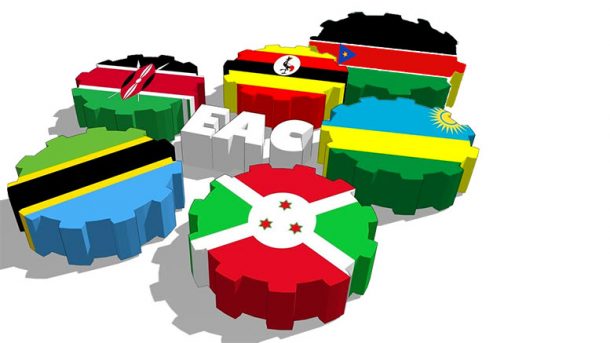
Our Projects are
Transforming African Trade
Quick Contacts
2nd Floor, Fidelity Insurance Centre Waiyaki Way, Westlands

East African Business Council (EABC) has raised new concerns that variations in tax policies are distorting prices and frustrating intra-EAC trade and investment.
As a result, the EAC member states are being urged to eliminate discriminatory taxes and accelerate the harmonization of domestic taxes within the bloc if they are to attract improved cross-border and foreign direct investments.
Unharmonized taxes, it emerged, was largely contributing to the bend of the intra-EAC trade and cross-border investment and frustrating the free movement of goods, services, service suppliers, and workers.
Speaking during the Validation Webinar for the Study on Discriminative Taxes and Harmonization of Excise Duties in the East African Community (EAC) – the Council’s Chief John Bosco Kalisa, called on the EAC Partner States to adhere to Article 15:2 of Customs Union Protocol that states for the trade within the bloc to flourish.
“No Partner State shall impose, directly or indirectly, on the products of other Partner States any internal taxation of any kind in excess of that imposed, directly or indirectly, on similar domestic products,” states the article’s excerpt.
The continued intra-EAC trade decline reflects a gradual loss of competitiveness among the region’s manufacturers compared with Asian exporters, as well as increasing protectionism fueled by political tensions among some member countries that have engulfed the region over the past couple of years – limiting attractiveness.
Other upshots include an unlevelled playing field for business and difficulties in marketing the EAC bloc as a single investment destination, according to Kalisa.
The harmonization of domestic taxes is provided for in all stages of the EAC integration. However, EABC says that partner states have achieved little in this regard.
The EAC Agreement on Avoidance of Double Taxation agreed upon in 2010 has only been ratified by Uganda and Rwanda, while some EAC partner states have expressed fear of revenue loss due to the harmonization of domestic taxes.
Despite the tax concerns, the intra-EAC trade accounting for imports and exports in the 7 EAC Partner States, grew from 13 percent in 2019 at a value of $ 7.1 billion to 15 percent in 2021 at a value of $9.5 billion.
And by September 2022, the EAC trade value was recorded at $10.17 billion representing a 20 percent share of Intra-trade to global trade. Trade within the East African Community (EAC) stood at US$10.17 billion as of September last year.
And as of January this year, EABC metrics showed that the intra-EAC trade hit the US$10 billion mark as the bloc readies to send out Verification Mission Team to assess Somalia’s readiness to join the bloc.
Domestic taxes
The verification team comprising experts from the EAC Partner States is expected to give its verdict in establishing the country’s level of conformity following their trip to Somalia in January and early this month with the criteria for admitting foreign countries as provided in the Treaty for the establishment of the EAC.
The bloc has several treaties and agreements which often seek to advance negotiations on services and trade-related rules in the future. Some of those regional rules have seen the ban of unjustified or discriminatory restrictions on imports and exports, which has in turn helped the EAC’s efforts to get rid of non-tariff barriers in intra-EAC trade.
The region’s failure to harmonize levies has largely been blamed on bureaucracy between the private sector and the EAC Secretariat.
The EAC private sector is also not united in its position, especially regarding local content in the excise taxes.
The system of harmonizing the domestic tax regimes is also too long and bureaucratic.
It commences at the Technical Working Groups that report to the Fiscal Affairs Committee and then goes to the Sectoral Council on Finance and Economic Affairs.
This then sends agreed instruments to the Sectoral Council on Legal and Judicial Affairs Council, the Council of Ministers, the East African Legislative Assembly, and finally the Summit.
The current roadmap envisages that partner states will start to harmonize excise duty, followed by VAT, then income tax, and subsequently tax incentives.
Financial support
African Governments have further been urged to facilitate access to capital and crowd-funding to support SMEs in Africa, through the use of Government Guarantee Funds (GGFs) and Privately Driven Guarantee Funds (PDGFs) including subsidizing agricultural production for key sectors such as cereals, vegetable, and palm oil to reduce the costs of production to enhance global competitiveness.
East African Community (EAC) Partner States have been called upon to seek local solutions to the huge gap in financing facing Micro, Small, and Medium Enterprises in the region.
The World Bank has earmarked about US$15 million to enhance and accelerate regional digital integration efforts across the East African Community (EAC).
The Bank through its Single Digital Market (SDM) initiative aims at supporting the region to become a more deeply integrated and dynamic digital investment, innovation, and growth hub.
Read original article
Disclaimer: The views and opinions expressed in this article are those of the authors and do not necessarily reflect the official policy or position of TradeMark Africa.